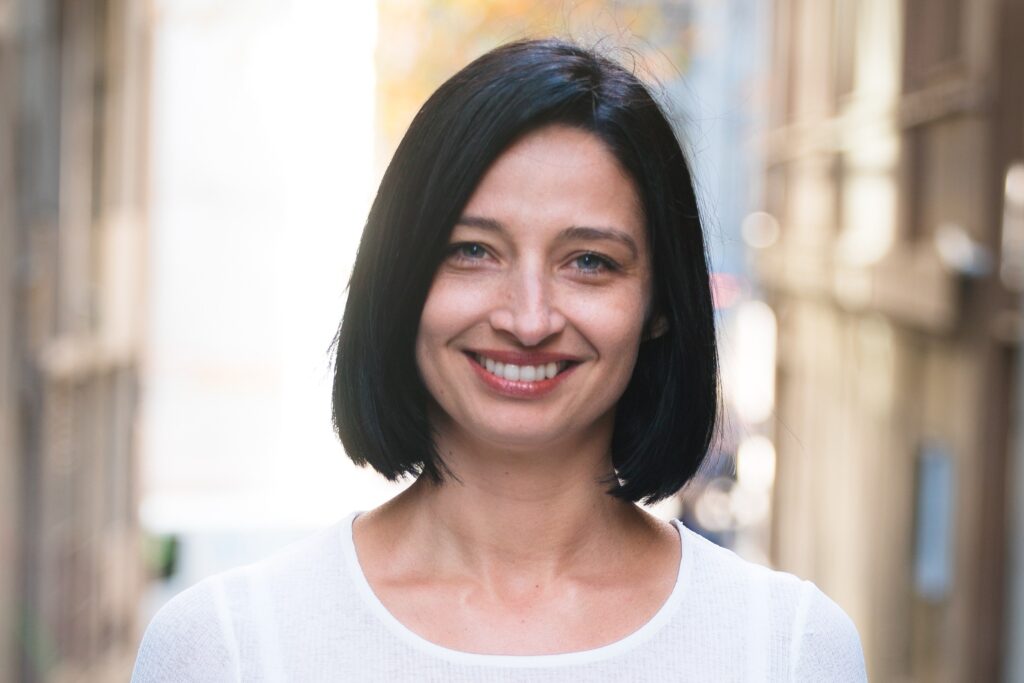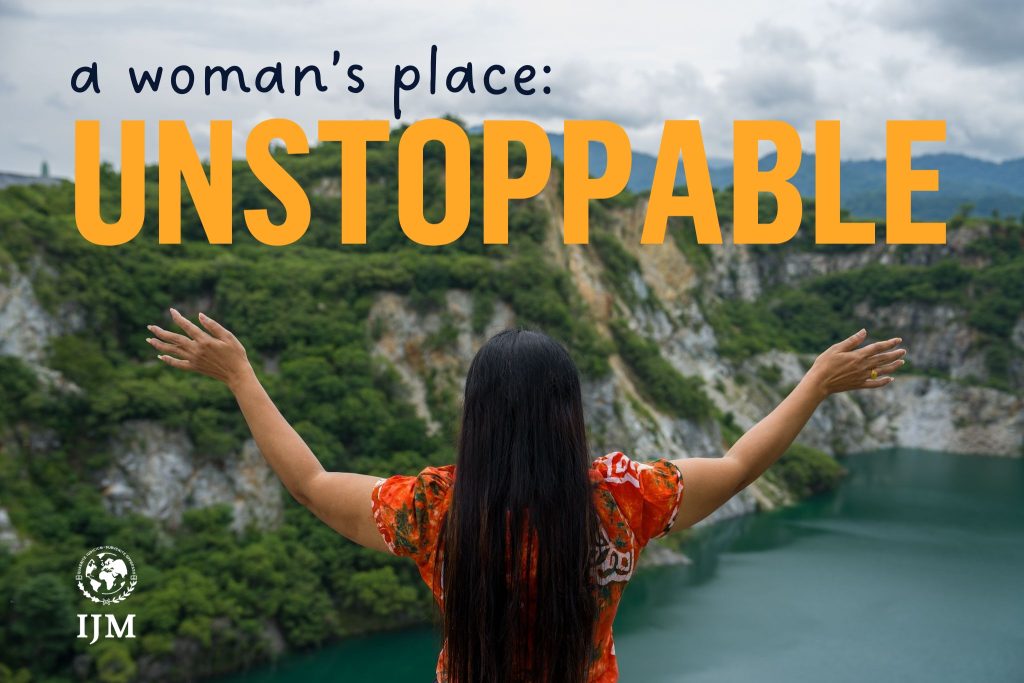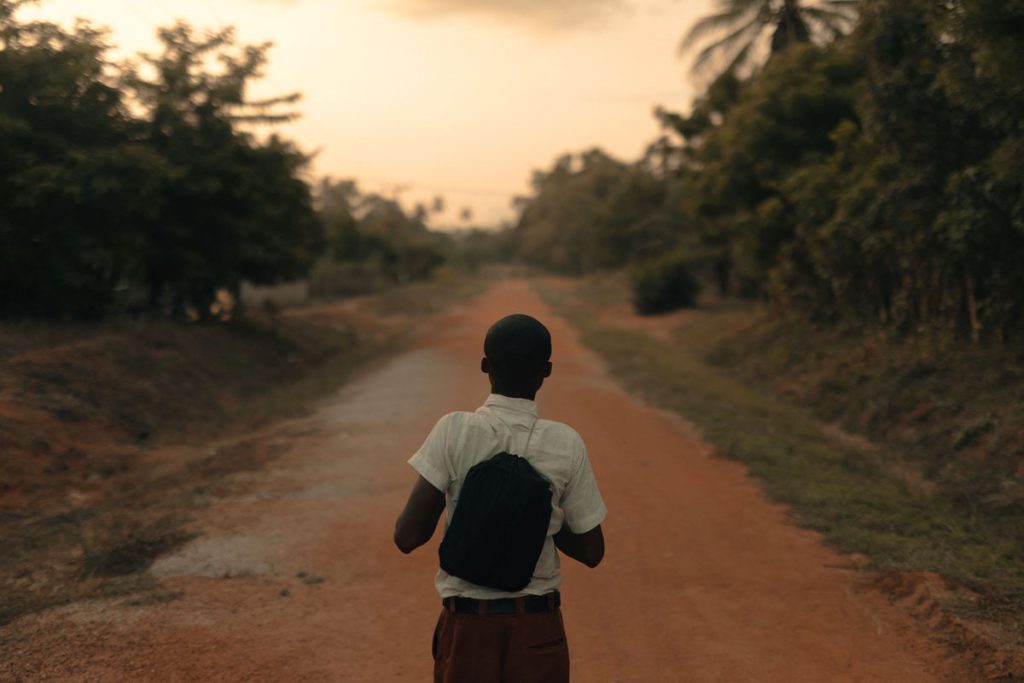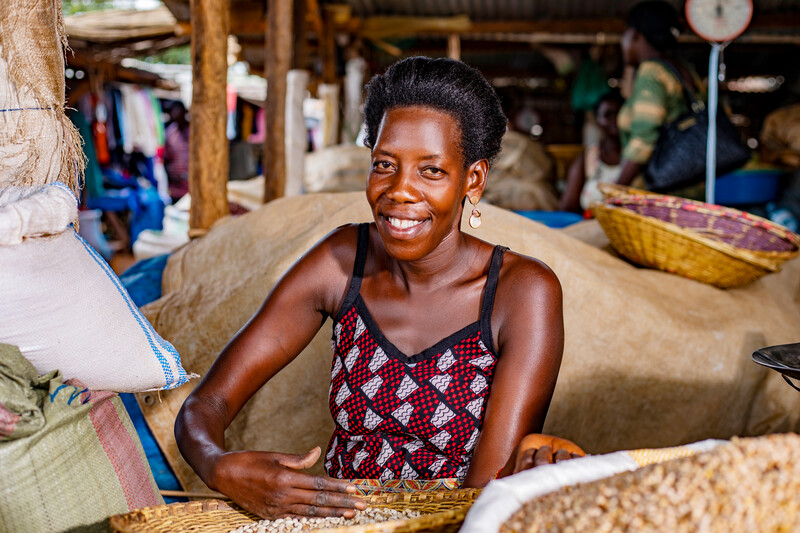
During the month of June, we are focusing on the restoration of children out of cybersex trafficking through our ‘Found to Free’ campaign. We are exploring the journey towards true freedom for those who have experienced significant trauma – and Joy’s story shows us how powerful it can be when we use our voice to speak up.

In our ‘Just Moments’ series, we spoke to Richenda Vermeulen, Founder and CEO of ntegrity in Melbourne. Richenda uses her voice and platform to speak out against cybersex trafficking of children.
Q: Who are you and what’s your connection with IJM?
A: I am a mum of one – soon-to-be mum of two. I am married to an amazing man named Kyle. We met 10 years ago at World Vision where we both worked and fell into this world of digital marketing. Over the course of the last eight years I started a business called ntegrity that helps not-for-profit organisations grow online.
I had heard of IJM when we were living in America. I didn’t know much of their model or theory of change back then – just that they helped people in slavery. Jacob (IJM Australia’s interim CEO) and I worked together at World Vision previously and we caught up at a conference where he informed me about the work of IJM. At first I thought it was merely a work chat, but as he started talking about the harsh reality of cybersex trafficking, I became obsessed with it.
I actually had heard a few years earlier about this new crime where people could live stream or purchase online abuse. That was such an intense thing to hear but I didn’t know where I could get more information about it. So when Jacob started sharing more information about the matter, I started to learn that IJM was at the forefront of addressing this issue. It captured my heart and mind. It’s very complicated and continually growing, and I am still very fascinated by how the pieces of the problem of and solution to cybersex trafficking fit together.
Q: In 2018 you visited Cebu, Philippines with IJM. Could you share with us an impactful moment from that trip?
A: There were so many impactful moments. One was when we were with the police unit that IJM was supporting – there were only seven police officers at that time, though now there are many more. These officers were highly committed to their work, finding victims, and seeking justice against perpetrators. Meeting the officers was so powerful as we had spent days unpacking and understanding the crime. Discovering the reality that these seven police officers had to bear the weight of hundreds of thousands of cyber tips for the crimes of thousands of perpetrators outside the Philippines, committed against Filipino children, was incredibly moving.
I remember hearing their stories, passion and commitment and feeling this incredible anger of the injustice of the responsibility they had. I remember another Australian on the visit saying, “I’m sorry on behalf of Australia and the crimes we’ve sent your way”. It was so direct, the fact that someone in Australia was causing significant pain and suffering for a child in another country. And it was simply at the touch of a button – it was so transactional and that was hard to digest.
Another memorable moment was visiting the girls at an aftercare house. It was such a joy to hear them singing together. The social worker said, “Music is a way for the girls to express their trauma when words are too painful”. These songs spoke out words of joy, beauty, and hope for the future. Through this the girls were connecting together and loving each other as if they were sisters.
It was such a privilege to experience something that was incredibly beyond my understanding. That’s why it’s so easy for me to talk about this all the time, because I was so moved by what I saw on that trip.
Q: In Chapter 3 of Joy’s Story, we see her speaking out, using her voice for advocacy. Can you share with us what speaking out looks like for you?
A: Something that I’ve learnt about change from IJM is that every little step means something. From simply sharing the awareness, to bringing technology communities together, to asking friends to donate and support the cause, every opportunity is worth making the effort. I don’t have a strategic plan for how I use my voice for good – I take it day by day and am surprised about where that leads.
Sometimes I might run an event or initiative and I hope that everyone in attendance will be moved to action. But I’m reminded that change doesn’t happen over one event – it is built one step at a time. And there are thousands of people around the world doing their bit. By using our voice, prayers, and giving we can make a difference.
I don’t see it as a formula. Just ask, “Who’s in your circle?” You don’t have to be an expert. I really appreciate that IJM lets me talk about these things without restricting me to programmatic language or prescribing a specific ask. IJM has built an organic movement and it’s exciting to be a part of it.
Q: Are there any extra tips you could suggest on how we could use our voice?
A: Stay on top of the news surrounding these issues. On the topic of cybersex trafficking, Australia is doing a great job! The Australian Federal Police share the same passion as the Philippine police officers to end cybersex trafficking.
By staying on top of the current news you can share it with your friends and community to raise awareness of these crimes.
IJM also does a great job with sharing rescue stories regularly to provide hope, as facts and news can be boring or overwhelming for some people. These rescue stories could be new and powerful for someone who’s never been aware of such global issues. Fundraisers in your workplace and writing to your local MP are also great ideas for raising awareness.
Q: Are there any other points you would like to share with our supporters and viewers?
A: One thing I would say is feel very secure and confident with your donations. I’ve seen IJM’s dedicated workers passionately pursing the end of injustice. I know especially with COVID-19, crimes are increasing behind closed doors, so our generosity needs to increase in line with that. There are many myths around charity donations however I’ve been continually impressed with IJM’s stewardship and focus.
Another thing to say is that the work is mentally, physically, and emotionally taxing on the staff, especially with the content they are exposed to and the hours they put in. In a culture where family is everything, there are staff members who have to pull children away from their own mothers while they’re still being weaned. This is why we pray for the team and the children in the Philippines every day – I think they have the hardest job in the world. I am forever grateful for the resilience and strength in IJM’s staff. You might not otherwise see this side of them unless you’ve met them, and it stays with you.
This post is based on Just Moments: Liv(e) with …, a series of Instagram Live conversations with experts, focusing on the role of aftercare for survivors of cybersex trafficking. Watch it here.
Learn more about cybersex trafficking here.




